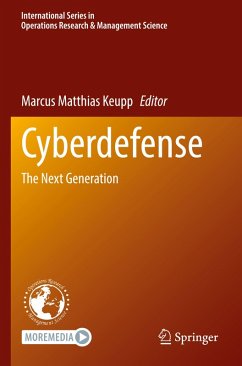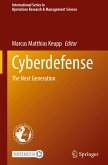This book analyzes cyberdefense from a novel and interdisciplinary perspective, offering solutions for problems that have long impeded a more efficient defense. It explains why cyberdefense organized and performed by humans is too slow, too cumbersome, and too ineffective.
Combining the analytical capabilities of experts in operations research and management, international security studies, economics, risk analysis, and defense management, the volume addresses these problems of current cyberdefense. The authors present suggestions for the next generation of cyberdefense, explaining why the future defense must focus on speeding up responses, why a single response may not be enough, and why effectiveness requires foresight.
This makes the book a must-read for scholars, researchers, intelligence analysts, homeland security staff, and professionals who are interested in learning more about the issues of current cyberdefense, as well assolutions for the next generation of cyberdefense.
Combining the analytical capabilities of experts in operations research and management, international security studies, economics, risk analysis, and defense management, the volume addresses these problems of current cyberdefense. The authors present suggestions for the next generation of cyberdefense, explaining why the future defense must focus on speeding up responses, why a single response may not be enough, and why effectiveness requires foresight.
This makes the book a must-read for scholars, researchers, intelligence analysts, homeland security staff, and professionals who are interested in learning more about the issues of current cyberdefense, as well assolutions for the next generation of cyberdefense.








